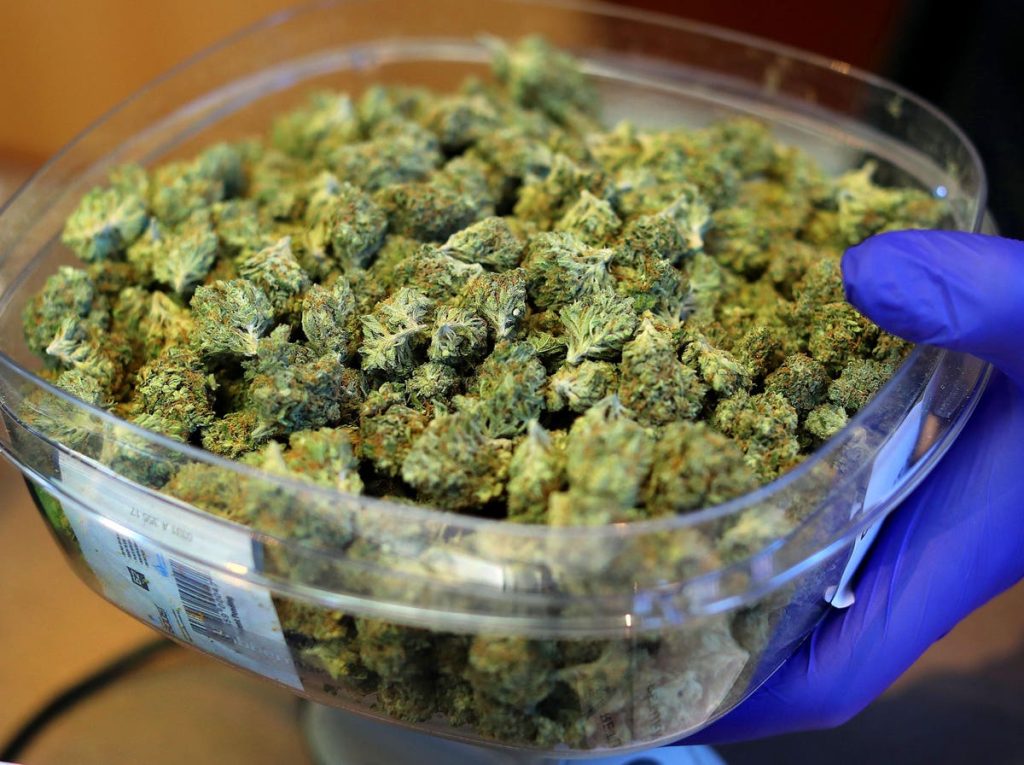Several marijuana establishments in Arizona have been trying to “weed” out products that may have gotten contaminated with either some nasty bacteria or some not-so-fun fungus. So you “marijuana” pay attention to a June 14 announcement from Arizona Department of Health Services (ADHS). Testing by the ADHS has revealed the presence of Aspergillus and Salmonella in marijuana product samples and subsequently triggered the voluntary recall of four different marijuana products.
The recall affects certain batches of three different products that may have been contaminated with Salmonella: Cap’s Frozen Lemon (Batch Number 041323-LR.CFL), Twisted Lemonz (Batch Number 041323-LR.CFL), and Ghost Train Haze (Batch Number 040423-LR.GTH). The recall also includes a specific batch of a fourth product, Cherry Punch (Batch Number 221116-02-40), that may have been contaminated with Aspergillus. All of these products came from one cultivator: Cannabist.
So if you’ve gotten any of these products from any retailer in Arizona, don’t ingest, inhale, or otherwise consume them. In this case, “recall” doesn’t simply mean, “Hmm, where did I put these products?” Rather, once you find these products either dispose of them or return them for a refund immediately. And dispose of them doesn’t mean feed them to your roommate.
That’s because Aspergillus and Salmonella are two things that you typically don’t want to be deliberately putting into your body. If someone asks you whether you want a bunch of Aspergillus on your sandwich or some Salmonella with your salami, just say no. That’s because getting infected by either of these pathogens ain’t dope, so to speak.
Aspergillus is a common mold or type of fungus that can be found in many indoor and outdoor locations. While you can typically breathe in Aspergillus spores without getting sick, you don’t want to deliberately do so. That would be like saying, “Since I breathe in car fumes every day, I might as well put my mouth around a car exhaust pipe.” This mold, especially in larger amounts, can end up triggering different types of allergic reactions. For example, you can have allergic aspergillus sinusitis, which can resemble a sinus infection. You can also develop allergic bronchopulmonary aspergillosis (ABPA), an reaction in your airways which can resemble asthma. Treatment of such allergic aspergillosis may consist of taking an anti-fungal medication called itraconazole as well as potentially corticosteroids.
Using marijuana contaminated with aspergillosis can “toke” your breath away in other ways as well. The mold can cause various types of aspergillosis infections, especially in those who already have weakened immune systems or some kind of lung disease. One type of lung infection is chronic pulmonary aspergillosis, which can have symptoms such as weight loss, coughing, fatigue, shortness of breath, and coughing up blood. Another type is invasive aspergillosis, which is, guess what, when the lung infection is even more invasive. Such infections can end up spreading to other parts of the body as well. An anti-fungal agent named voriconazole is typically the treatment of choice for these infections. Other options include lipid amphotericin formulations, posaconazole, isavuconazole, itraconazole, caspofungin, and micafungin, according the Centers for Disease Control and Prevention (CDC).
Then there’s the aspergilloma, otherwise known as a “fungus ball,” which isn’t a ball to have. It’s typically not good to any type of ball in your lungs, whether it is your football, your basketball, a fungus ball, or someone else’s balls. “Other than the fungus ball in my lungs, everything is going great today,” is something that people almost never say. You may even have to undergo surgery to remove such a ball from your lungs. Yes, dealing with such a fungus ball is not fun.
Getting a Salmonella infection isn’t fun either. After the bacteria goes down your gastrointestinal tract you may begin developing symptoms anywhere from six hours to six days later. The most common symptoms are four to seven days of fever, stomach cramps, and diarrhea, which can be bloody awful. The diarrhea can literally have blood in it. You may also have headaches, nausea and vomiting. In some cases, a Salmonella infection can even progress to a life-threatening situation, especially if you have a weaker immune system.
The ADHS did note that as of June 14 no illnesses had been reported. They also used the standard tagline that “This announcement is being made out of an abundance of caution,” as opposed to “This announcement is being made out of a complete lack of caution.” The ADHS also emphasized that once they contacted the facility that produced the products about the potential contamination, the licensee did promptly work with all of their distribution and retail partners to pull potentially affected products from store shelves.
There’s no “weeding” between the lines here, though. Take any such recall notice seriously and seek medical care if you’ve already consumed any of the products subject to the recall and developed any of the aforementioned symptoms. It may help to any possible infections at the bud.
Read the full article here










